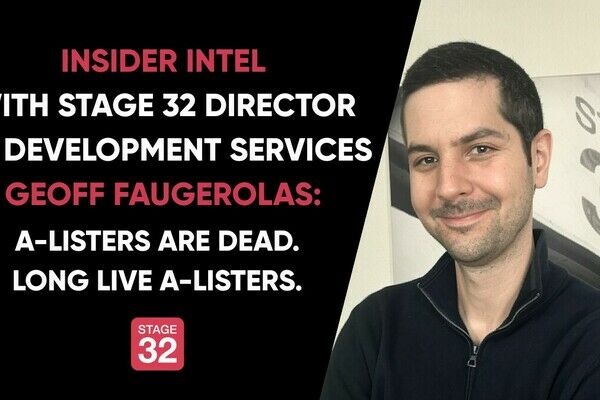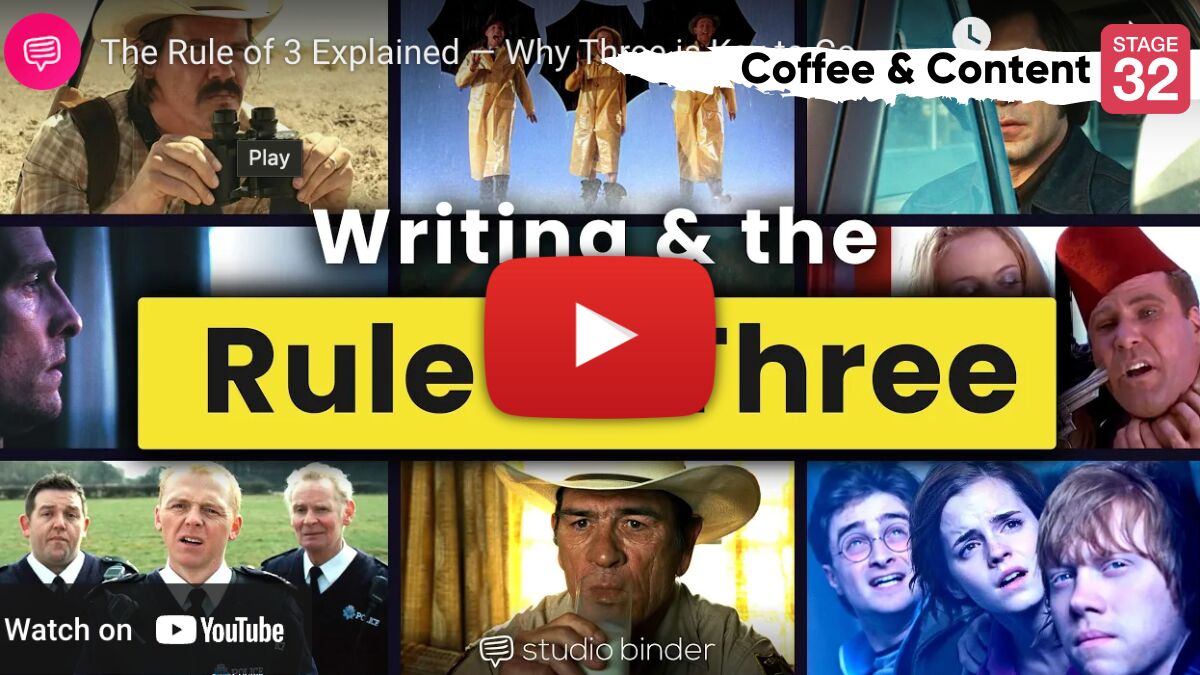How To Become An Emotionally Resilient Filmmaker
The film industry is a unique business. Writers, producers, directors, and performers can truly focus and dedicate their time and resources to their passion.
However, at the same time, filmmakers often experience frustration, stress, anxiety, anger, failure, overwhelm, burnout, and resentment as they deal with the daily challenges and complexities that characterize filmmaking. The film industry, for most people, is a high-demanding, labor-intensive, financially unstable, prestige-driven, and hard-to-reward business!
Every stage of filmmaking has its level of unpredictability. Full of action and drama, the process of filmmaking can at times be overwhelming. It requires a great deal of energy and assertiveness for the filmmaker to remain calm in such a dynamic context.
In this piece, we will discuss how to become a resilient filmmaker. We will assess the uncertainty and arduous emotional endurance that is required at the several stages of filmmaking and eventually, how emotional resilience and intuitive intelligence, harmonious relationships, and conscious choice can help the filmmaker to succeed.

The Stages Of Filmmaking & Day-To-Day Challenges
Filmmaking consists of several stages. We will briefly look at some of them: development, financing, principal photography, theatrical release, and distribution and recoupment, and highlight the challenges that come with each stage.
Challenges During The Development Stage
At the development stage, writing a script can take years, and constant changes to the script will need to be made before producers are finally available to read it. Then selling the script is the next challenge. The reality of the film industry is that most scripts will never find their way to the screen. Rejection is common ground. Writers are often creatives with limited access to the business side of the film, which is dominated by the studios and platforms, or in the independent space, talent agents, producers, lawyers, sales agents, and distributors, who eventually decide which scripts will get made, and who will have access to A-list talent and financing.
Film Financing: Lack Of Control
The film producer has the centerpiece task of putting financing together for a film project. This can be a long and difficult process. Most projects will not get the necessary financing and will never see the light of day. Potential investors may pass on the project or sometimes pull out at a later stage. Financial pieces come in place and fall apart constantly. The producer’s control is limited. If something is wrong with documents, due diligence, or otherwise, delays and additional costs can be the result, and in a worst-case scenario, the so long awaited and fought for financing can even fully collapse, after which production can be back at the development level.
The Stress Of Principal Photography
Principal photography is the moment of physical production. This stage is usually short, tightly planned, and extremely labor intensive. All sorts of factors may play a role in success: commitment of cast and crew, weather conditions that may take an unforeseen turn (think of rain, storm, hurricanes, or earthquakes), social-political circumstances (like strikes or riots), or day-to-day production issues like permits and illness. Principal photography can be stressful: If something goes wrong, production can be delayed, extended, or canceled, resulting in more costs, an increase in budget, a temporary hold, or even a collapse of the production process.
The Long-Awaited Moment: The Release Of The Film
The release of a film in theaters is a key moment for the financial and overall success of the film. The box office numbers are crucial in the first days of release. It can make or break the reputation of the film. The days of release of the film can cause anxiety for the whole production team, investors, and other participants.
Distribution & Recoupment: Accountability Towards Investors & Participants
Now that the film is out and released, the producer’s focus will be on international distribution and recoupment of financing and other costs from the film’s worldwide revenues. Statistics show that It is very hard for independent films to break even and make profits. The film producer will have to account for investors and other participants in the film. Relationship and future film and business opportunities may depend on the actual financial performance of the film.

Becoming Emotionally Resilient As A Filmmaker
Now that we have walked through some of the stages of filmmaking and have identified typical moments of stress and anxiety, let’s focus on how the filmmaker can manage these feelings and eventually become resilient.
We will explain what emotional resilience and intuitive intelligence are, discuss human relationships as the key to success, and focus on the superpower of choice.
Emotional Resilience & Intuitive Intelligence
Emotional resilience can be defined as the capacity to prepare for, adapt to, and recover from difficult and stressful emotional situations.
Intuitive intelligence is the ability to choose emotional insights that can guide our practical mind to the harmonical expression and manifestation of purpose and ideas.
Emotional resilience and intuitive intelligence are essential abilities to develop, which will help the filmmaker to become resilient and serve as guidance along the filmmaker’s path toward success in the film industry.
Filmmaking is a business in which the more resilient you are, the more likely you will triumph. The capacity to experience stress and then harness its power to your advantage will help you to find and create much-needed order in a world of chaos.
Emotional resilience and intuitive intelligence are skills that can be developed with guided practice using tools, strategies, and techniques.
Harmony In Human Relationships: The Key To Success
For a project to succeed through all stages of filmmaking and eventually reach the screen and generate revenues, the filmmaker’s relationships must remain healthy, meaningful, and engaged. At the end of the day, you cannot do this alone: working together is essential for a film project to succeed.
Human relationships are complex. They can shift from a joyful sense of connected ease and flow into a hectic, problematic, stressful, and sometimes even destructive set of circumstances. Choosing the right angle for every relationship is essential. Intuitive intelligence will help the filmmaker take the right angle, choose the right people to work with on a project, and establish harmonious relationships.
Some relationships will endure, and others will end. The resilient and intuitively intelligent filmmaker will be able to prepare for, adapt to, and recover from difficult and stressful relationships (emotional resilience) and then use his or her emotional insights and express and manifest purpose and ideas (intuitive intelligence) to find and engage in new relationships.

Choice: Your Superpower
When handling and managing uncertainty, as human beings we have a superpower called choice! It is the manifestation of our free will. Choice is either exercised by our own conscious will or by emotional reactiveness to circumstances.
The film industry is full of uncertain circumstances. The practice of choice with effective and efficient tools, strategies, and techniques will help the filmmaker to develop the ability to proactively create the right circumstances rather than to react to circumstances imposed by others.
By applying emotional resilience and intuitive intelligence, acknowledging the importance of the human element of relationships, and being conscious of our ability to choose, the filmmaker will become resilient. The resilient filmmaker will be in a position to face the day-to-day challenges of filmmaking and eventually, be ready for the path towards success.
Conclusion
Filmmakers experience frustration, stress, anxiety, anger, failure, overwhelm, burnout, and resentment during all stages of filmmaking, which include development, financing, principal photography, release, distribution, and recoupment. Becoming resilient will help the filmmaker deal with the day-to-day challenges of filmmaking in his or her path to success. Practicing emotional resilience and intuitive intelligence, creating harmony in human relationships, and applying the superpower of conscious choice are key elements towards becoming a resilient filmmaker.
Do you want to know more about becoming a resilient filmmaker and how to apply intuitive intelligence in filmmaking?
This piece was co-authored by David Zannoni and Alain Phillips Yeroham. Alain is a relationship, intuitive intelligence, and emotional resilience coach with more than 20 years of professional experience and a former filmmaker. Using their vast experience, Alain has created The Emotional Perspective by which filmmakers can be coached, mentored, and guided, so they can develop their ability to choose wisely, relate harmoniously, and manifest precisely. Alain's coaching has been a great support to David's long-running career in the film industry.
You can connect with both David and Alain here on Stage 32!
Let's hear your thoughts in the comments below!
Got an idea for a post? Or have you collaborated with Stage 32 members to create a project? We'd love to hear about it. Email Emily at blog@stage32.com and let's get your post published!
Please help support your fellow Stage 32ers by sharing this on social. Check out the social media buttons at the top to share on Instagram @stage32 Twitter @stage32 Facebook @stage32 and LinkedIn @stage-32
| Coffee & Content: The Rule Of Three Explained |
| Follow The Yellow Brick Road To Your Goals! |
Search Stage 32 Blog
There are now 4037 blog posts for you to enjoy. Search them all by tags below.
Acting, Advice, Cinematography, Coffee & Content, Composing, Contests, Distribution, Featured, Filmmaking, Financing, Inspirational, Networking, Producing, Screenwriting, Success Stories, Tips, Trending,Relevant Tags
Recommended Articles

Find Your Footing on Stage 32: Join Our December Community Open House

November Write Club Week #3: How To Make A Strong First Impression When Meeting Execs, Producers, & Reps

Coffee & Content: Why Your Next Step Matters More Than the Perfect Step

How Stage 32 Script Services Make You A Better Writer

Want Success in the Entertainment Industry? Start Writing Your Own Narrative

Stage 32 Featured at the 43rd Torino Film Festival!

Insider Intel: A-listers Are Dead. Long Live A-listers.

Insider Intel: Packaging your Project- The Chicken or the Egg Dilemma

How Modern Franchises Became Our New Religion






